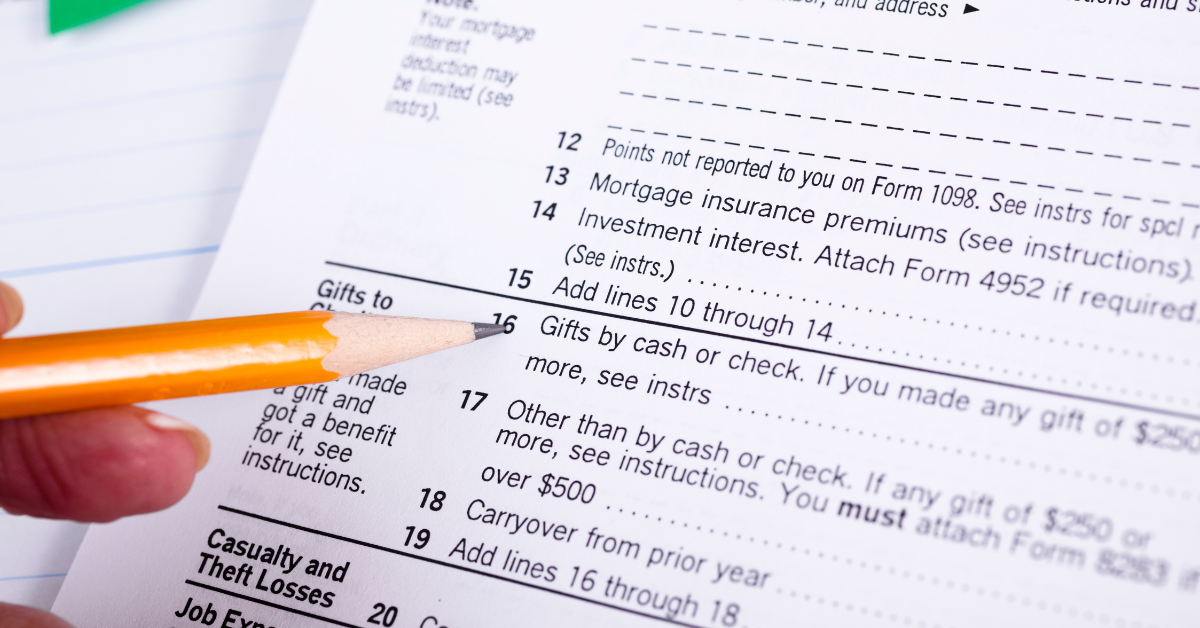As you’re finishing up your 2023 tax returns, give yourself enough time to make sure you’re claiming all the tax deductions you can. That investment could put a nice chunk of change back into your pocket.
A tax deduction, as defined by the IRS, is “an amount you subtract from your income when you file so you don’t pay tax on it.” Less income means less tax that you owe.
Each year, however, many Americans overpay their income taxes simply by omitting deductions they deserve. According to the IRS, Americans who claimed the standard deduction on recent received more than $747 billion in tax deductions, but many of them missed other deductions they deserved.
Roanoke CPA Firm Weighs In: 5 Commonly Overlooked Tax Deductions
Tax deductions are designed to help Americans meet expenses for things like child care and medical care and to support charitable giving. Eligibility for these deductions will vary by household and often from year to year. But there are deductions that are commonly overlooked. Here are five of them:
1. Charitable contributions: Few people forget a large charitable donation during tax time. But smaller donations, especially contributions such as clothing or household goods, can add up as well. You’ll need good documentation of your good deeds, and the IRS will ask for a professional “qualified appraisal of the item or group of items” if your donated items were worth $5,000 or more.
2. Job search expenses: If you searched for new job within your current career field, you can deduct some expenses if they weren’t reimbursed by the prospective employer, such as transportation costs, resume printing, and even agency fees.
3. Student loan interest: You can deduct up to $2,500 or the actual amount, whichever is less, of the interest you paid on your qualified student loans in 2023 for yourself, a spouse, or someone who was dependent at the time the loan was made. If you paid more than $600 in qualified interest in 2023, you should have received a Form 1098-E.
4. Medical expenses: You can deduction a portion of your medical expenses — that not covered by insurance that exceed 7.5% of your adjusted gross income (AGI). This includes a wide range of costs such as health insurance premiums, copays, prescription medications, lab fees and even some travel expenses. You can also deduct a portion of the cost of your long-term care insurance if it’s not covered by an employer.
5. Educator expenses: Teachers often pay for needed classroom supplies out of pocket. Through the Education Expense Deduction, teachers can deduct up to $300 worth of those expenses from their income for 2023 and 2024. Qualified expenses include books, supplies, and computer equipment used in the classroom.
Work with a Tax Professional to Find All Your Deductions
Navigating instructions and understanding the different requirements for each tax deduction can be a daunting process – but it’s a necessary one. Tax laws can change from year to year, so don’t guess when it comes to your return, especially if you’ve never itemized before.
Using professional tax services like Neely’s Accounting in Roanoke will take the stress out of the process by finding all the deductions you’re entitled to and ensuring that your return is accurate.
Contact Neely’s for Tax Preparation in Roanoke, Virginia
When it comes to tax services in Roanoke, Neely’s has been the go-to expert since 2007. We offer a full range of professional products at a fair price, and our friendly advisors are always ready to help. Contact us and let us help you get the deductions you deserve.









